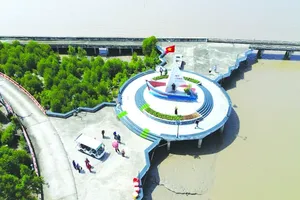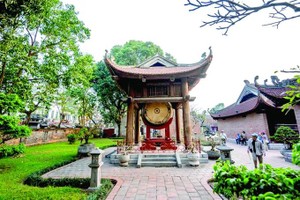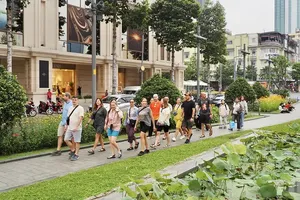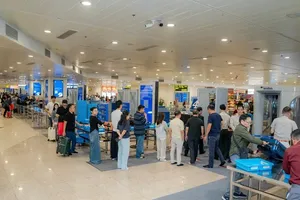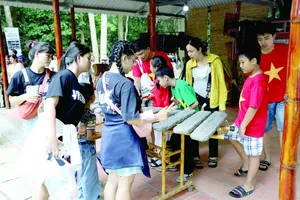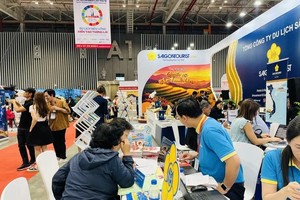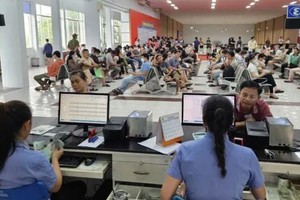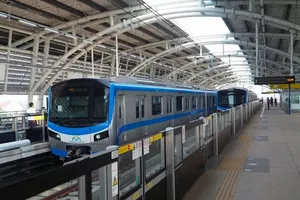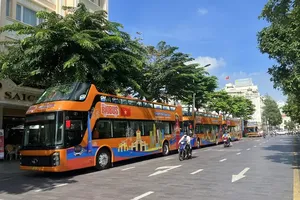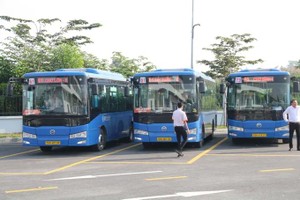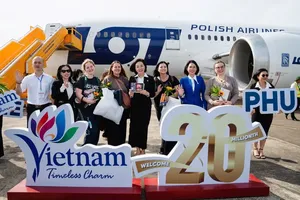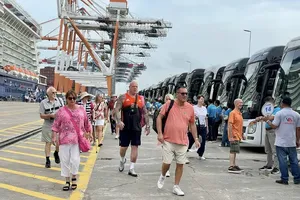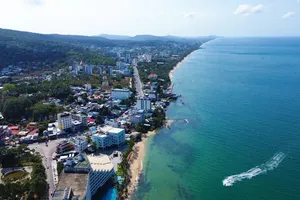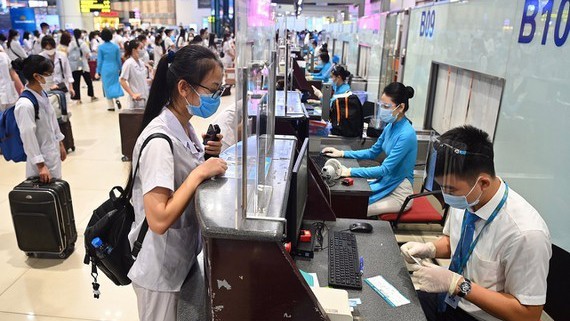 Illustrative photo
Illustrative photo
The proposal has been sent to ministries, ministry-level and governmental agencies, and provincial-level administrations for recommendations.
Accordingly, the MoH suggested that air passengers need to show a certified negative result of RT-PCR/RT-LAMP tests within 72 hours or of rapid antigen tests within 24 hours prior to their departure.
They also don’t need to undergo post-entry testing but have to follow Covid-19 prevention and control measures like those who have been staying in Vietnam.
For people entering Vietnam by other means of transportation, those who already had a negative test result for the coronavirus SARS-CoV-2 will follow anti-pandemic rules like air passengers.
Those without a negative test result will undergo either RT-PCR/RT-LAMP or rapid antigen test within the first 24 hours of their entry. They will continue following anti-pandemic measures if the test result is negative, but have to report to local health authorities to receive instructions if it is positive, the MoH proposed.
All people entering Vietnam will have to make health declarations prior to their entry and use the health declaration app PC-Covid throughout their stay in the country.
At border gates, people showing Covid-19 symptoms like fever, cough, sore throat, running nose, aches and pains, tiredness, cold, and loss of taste or smell have to immediately report to local health units so as to take response measures. They must seriously adhere to the 5K principle (khau trang - wearing face masks, khu khuan - disinfection, khoang cach - keeping distance, khai bao - making health declaration, khong tu tap - no gathering,) when moving from the ports of entry to accommodation facilities and minimise stops along the way.
The MoH also proposed children under 2 not have to take Covid-19 tests, and those who haven’t been vaccinated or infected with SARS-CoV-2 can join their parents and relatives in activities outside their accommodation facilities.
